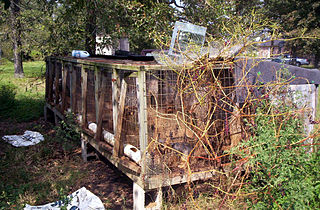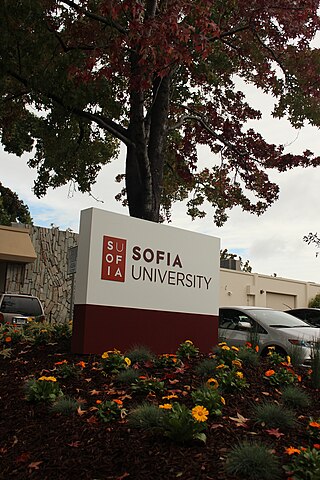Related Research Articles

Sherry Turkle is the Abby Rockefeller Mauzé Professor of the Social Studies of Science and Technology at the Massachusetts Institute of Technology. She obtained a BA in social studies and later a PhD in sociology and personality psychology at Harvard University. She now focuses her research on psychoanalysis and human-technology interaction. She has written several books focusing on the psychology of human relationships with technology, especially in the realm of how people relate to computational objects. Her memoir 'Empathy Diaries' received fair critical reviews.

Intrapersonal communication is communication with oneself or self-to-self communication. Examples are thinking to oneself "I'll do better next time" after having made a mistake or having an imaginary conversation with one's boss because one intends to leave work early. It is often understood as an exchange of messages in which the sender and the receiver is the same person. Some theorists use a wider definition that goes beyond message-based accounts and focuses on the role of meaning and making sense of things. Intrapersonal communication can happen alone or in social situations. It may be prompted internally or occur as a response to changes in the environment. The term "autocommunication" is sometimes used as a synonym.

The University of Alberta is a public research university located in Edmonton, Alberta, Canada. It was founded in 1908 by Alexander Cameron Rutherford, the first premier of Alberta, and Henry Marshall Tory, the university's first president. It was enabled through the Post-secondary Learning Act. The university is considered a "comprehensive academic and research university" (CARU), which means that it offers a range of academic and professional programs that generally lead to undergraduate and graduate level credentials. It is ranked among the top public universities in Canada by major college and university rankings.

A puppy mill, also known as a puppy farm, is a commercial dog breeding facility characterized by quick breeding and poor conditions. Although no standardized legal definition for "puppy mill" exists, a definition was established in Avenson v. Zegart in 1984 as "a dog breeding operation in which the health of the mill’s dogs are disregarded to maintain a low overhead and maximize profits". They are cited as being a result of an increased demand for household pets, especially after WWII. The Veterinary Medical Association of the Humane Society of the United States defines the main characteristics of a puppy mill as "emphasis on quantity over quality, indiscriminate breeding, continuous confinement, lack of human contact and environmental enrichment, poor husbandry, and minimal to no veterinary care."

Hildegard E. Peplau was an American nurse and the first published nursing theorist since Florence Nightingale. She created the middle-range nursing theory of interpersonal relations, which helped to revolutionize the scholarly work of nurses. As a primary contributor to mental health law reform, she led the way towards humane treatment of patients with behavior and personality disorders.
Good News is a musical with a book by Laurence Schwab and B.G. DeSylva, lyrics by DeSylva and Lew Brown, and music by Ray Henderson. The story is set in the Roaring Twenties at Tait College, where football star Tom Marlowe falls in love with studious Connie Lane, who is tutoring him so he can pass astronomy and be eligible to play in the big game.

Sofia University is a private for-profit university in Palo Alto, California. It was originally founded as the California Institute of Transpersonal Psychology by Robert Frager and James Fadiman in 1975.
Jorge N. Ferrer is a US-based Spanish psychologist who wrote about the applications of participatory theory to transpersonal psychology, religious studies, integral education, and sexuality and intimate relationships.
Jayne Gackenbach is a dream researcher whose focus is lucid dreaming and other altered states of consciousness. She holds a Ph.D in Experimental Psychology. She attended Virginia Commonwealth University, graduating in 1978, and went on to research at the University of Northern Iowa for 11 years and then moved to Canada. Her most recent research focuses on video game players and the development of consciousness.
Sophia Yin was a veterinarian, applied animal behaviorist, author and lecturer. She was a pioneer in the use of positive reinforcement for training dogs, and was widely recognized as an expert in the training of pets.
Online disinhibition effect is the lack of restraint one feels when communicating online in comparison to communicating in-person. People feel safer saying things online which they would not say in real life because they have the ability to remain completely anonymous and invisible behind the computer screen. Apart from anonymity, other factors such as asynchronous communication, empathy deficit, or individual personality and cultural factors also contribute to online disinhibition. The manifestations of such an effect could be in both positive and negative directions. Thus online disinhibition could be classified as either benign disinhibition or toxic disinhibition.
Ellen S. Berscheid is an American social psychologist who is currently a Regents professor at the University of Minnesota, where she earlier had earned her PhD in 1965. Berscheid conducted research on interpersonal relationships, emotions and moods, and social cognition. Berscheid wrote books, articles and other publications to contribute to the field of Social Psychology. She was involved in controversy surrounding the funding for her research on why people fall in love. In addition to her position at the University of Minnesota as a Psychology and Business professor; she has also held a position at Pillsbury. She has received awards for her contributions to social psychology, including The Presidential Citation and the Distinguished Scientific Contribution Award from the American Psychological Association.
Judee K. Burgoon is a professor of communication, family studies and human development at the University of Arizona, where she serves as director of research for the Center for the Management of Information and site director for the NSF-sponsored Center for Identification Technology Research. She is also involved with different aspects of interpersonal and nonverbal communication, deception, and new communication technologies. She is also director of human communication research for the Center for the Management of Information and site director for Center for Identification Technology Research at the university, and recently held an appointment as distinguished visiting professor with the department of communication at the University of Oklahoma, and the Center for Applied Social Research at the University of Oklahoma. Burgoon has authored or edited 13 books and monographs and has published nearly 300 articles, chapters and reviews related to nonverbal and verbal communication, deception, and computer-mediated communication. Her research has garnered over $13 million in extramural funding from the National Science Foundation, the Department of Defense, the Department of Homeland Security, the Office of the Director of National Intelligence, Counterintelligence Field Activity, and the National Institutes of Mental Health. Among the communication theories with which she is most notably linked are: interpersonal adaptation theory, expectancy violations theory, and interpersonal deception theory. A recent survey identified her as the most prolific female scholar in communication in the 20th century.
Adam N. Joinson is a British author, academic and public speaker within the area of cyberpsychology. He is Professor of Information Systems at University of Bath, following posts at the University of West of England and the Open University. and has conducted ground breaking research into the psychology of Internet usage.
Interpersonal emotion regulation is the process of changing the emotional experience of one's self or another person through social interaction. It encompasses both intrinsic emotion regulation, in which one attempts to alter their own feelings by recruiting social resources, as well as extrinsic emotion regulation, in which one deliberately attempts to alter the trajectory of other people's feelings.
Harry Reis is a professor of psychology at the University of Rochester. He has been a leading figure in the field of social psychology, credited with helping to launch the study of relationship science and notable for his contribution to theories of intimacy. His research encompasses emotional regulation, the factors that influence social interaction, and consequences of different socializing patterns for health and psychological well-being.
Joyce Lazaro Ndalichako is Minister of State in the Office of the Prime Minister of Tanzania. Previously she served as Minister of Education, Science, Technology and Vocational Training. She was appointed by the president of United Republic of Tanzania, John Magufuli, as a Member of Parliament and Minister for Education, Science, Technology and Vocational Training from 2015 in Tanzania.
Paula R. Pietromonaco is an American psychologist and principal investigator of the Growth in Early Marriage Project at University of Massachusetts, Amherst. She is the editor-in-chief of the journal Emotion, as well as the associate editor of Journal of Personality and Social Psychology: Interpersonal Relations and Group Processes section.

Margaret-Ann Armour was a Scottish-born Canadian chemist based at the University of Alberta. She is best known for her expertise in developing guidelines for hazardous lab waste disposal, and for being a vocal advocate for women in science. Armour founded the Women in Scholarship, Engineering, Science and Technology (WISEST) program, and served as the first and only Associate Dean of Science for Diversity at the University of Alberta. Among her many honors, she was named a member of the Order of Canada (2006), a 3M Teaching Fellow (1996) and a Canada 150 ambassador (2017).
Bernice Lott was a social psychologist known for her work on feminist psychology, gender, poverty, social class, and prejudice and discrimination. She was Professor Emerita of Psychology and Woman's Studies at the University of Rhode Island and was a former Dean of its University College.
References
- ↑ "Eureka! Discovery learning works". Macleans, Josh Dehaas, May 1, 2012
- ↑ "Prevent Another Litter Subsidy (PALS) Program". Edmonton Humane Society. Retrieved 7 March 2013.
- ↑ Heift, T (2008). Learner responses to corrective feedback for spelling errors in CALL. Burnaby, BC: Elsevier. pp. 196–213.
- ↑ "Spellers: From Beginning To Proficiency" (PDF). Literacy Secretariat. Archived from the original (PDF) on 8 October 2013. Retrieved 6 March 2013.
- ↑ Mark E. Ware; Charles L. Brewer (26 November 2013). Handbook for Teaching Statistics and Research Methods. Psychology Press. pp. 142–. ISBN 978-1-317-75934-8.
- ↑ "Why do we love cats so much? It comes down to science, professor says". CBC News, Aug 16, 2016
- ↑ "Edmonton students connect low-income people with free vet housecalls". Edmonton Sun, By Janet French, February 11, 2016.
- ↑ "Low-income Edmontonians get veterinarian support to keep pets" Sarah Kraus Global News, February 12, 2016
- ↑ "3M National Teaching Fellowship". STLHE. Retrieved 8 March 2013.